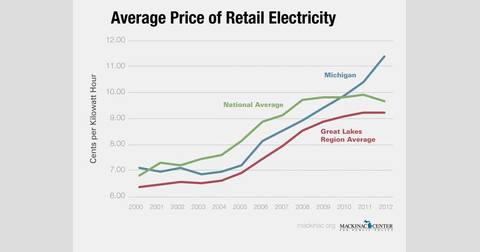U.S. Supreme Court Discusses Right-to-Work For All Public Employees
Union 'dues skim' case could mean the end of forced unionization of home-based caregivers, others
U.S. Supreme Court justices on Tuesday discussed turning the United States into a right-to-work nation regarding public sector unions.
The issue came up in a case related to union "dues skim" issues happening in Illinois, Michigan and other states around the nation.
"They were seriously considering reversing the Abood ruling," said Patrick Wright, senior legal analyst with Mackinac Center for Public Policy. "That was the case out of Michigan in which the court established that public sector employees could be forced to pay mandatory agency fees to unions."
In 1977, the U.S. Supreme Court ruled in the case Abood v. Detroit Board of Education, 431 U.S. 209, that a union shop, which is legal in the private sector, is also legal in the public sector. That case arose from a lawsuit in which public school teachers sought to overturn the requirement that they pay mandatory union fees on the grounds that they opposed public sector collective bargaining and objected to the ideological activities of the union.
Wright was at the U.S. Supreme Court in Washington, D.C., Tuesday where he watched oral arguments in Harris v. Quinn, a case involving the Illinois equivalent of Michigan's home health care dues skim.
In Michigan, Illinois, and several other states, home-based caregivers were subjected to forced unionizations. In Michigan, this happened during the administration of former Gov. Jennifer Granholm and involved a dummy employer and a mail-in election. in Illinois, it was done by executive order. Late last year, the U.S. Supreme Court agreed to take up Harris v. Quinn to determine whether such forced unionizations are constitutional.
The Mackinac Center Legal Foundation last year filed an amicus brief in Harris v. Quinn, supporting the arguments that such unionizations are not constitutional.
"Our brief centered on the situation with the home-based caregivers," Wright said. "But this morning the justices seemed focused mostly on the question of Abood and the agency fees. If the court were to reverse Abood it would essentially be the same as applying right-to-work to all public sector unions nationally."
Wright cautioned that attempting to predict what the high court might do based on oral arguments was like trying to read tea leaves. However, he said he thinks the final decision in Harris v Quinn would come down to one of the following three rulings:
It could rule that (1) Abood can be extended to home-based caregivers; (2) declare that it cannot be extended to home-based caregivers; or, (3) overturn the 1977 Abood ruling.
A decision is expected by midsummer.
Tuesday's oral arguments included exchanges between the Supreme Court justices and attorneys representing both sides in the case. Justice Anthony Kennedy and Paul M. Smith, who was representing the state of Illinois, which is defending the forced unionization, had one notable exchange,that was reported in the Court's transcript of the day's proceedings:
Justice Kennedy: "Let's assume that it's true, that a union's position necessarily affects the size of government. Is not the size of government a question on which there are fundamental political beliefs, fundamental convictions that are being sacrificed if a non-union member objects to this line of policy? Are there not other union proposals that say that state employee's salary must be a certain percentage of the total state expenditure? Does this not also involve the size of government, which is a fundamental issue of political belief?"
Smith: "Any outcome of a negotiation of a collective bargaining agreement involving public employees will involve the expenditure of public money in a variety of ways, and the outcome of that will, in that limited sense, at least, be a matter of public concern every bit as much and no more than when a government contractor . . ."
Justice Kennedy: "I'm not talking about a question of public concern. I'm talking about whether or not a union can take money from an employee who objects to the union's position on fundamental political grounds."
Smith: "Well your honor, that is what the Abood distinction between chargeable and nonchargeable . . ."
Justice Kennedy: "And I'm . . . I'm asking the justification for that under the First Amendment."
Smith: "Right. And . . ."
Justice Kennedy: "In . . . in an era where government is getting bigger and bigger, and this is becoming more and more of an important issue to more people."
Here is a full transcript of the oral arguments.
Michigan Capitol Confidential is the news source produced by the Mackinac Center for Public Policy. Michigan Capitol Confidential reports with a free-market news perspective.


 Caregivers protest union effort to skim home helpers’ pay
Caregivers protest union effort to skim home helpers’ pay
 Union targets home health helpers’ paychecks under the guise of collective bargaining
Union targets home health helpers’ paychecks under the guise of collective bargaining
 Michigan House approves bills to resurrect dues skim for home health care providers
Michigan House approves bills to resurrect dues skim for home health care providers

 Consumers Energy requests another rate hike one week after approval of $154 million increase
Consumers Energy requests another rate hike one week after approval of $154 million increase
 State climate conference to tout clean energy plans that will raise electricity costs
State climate conference to tout clean energy plans that will raise electricity costs
 Whitmer claims credit for helping Michiganders, but her policies raise costs
Whitmer claims credit for helping Michiganders, but her policies raise costs